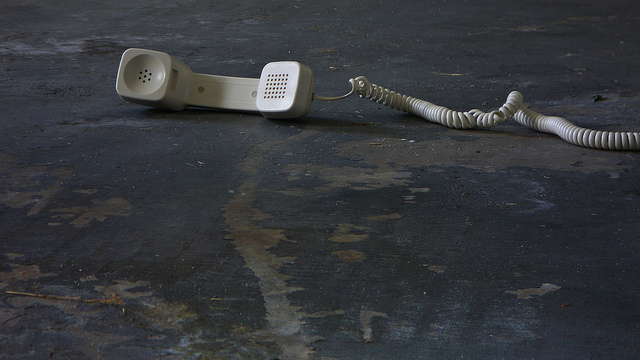
On 29 November, after a 10-week hiatus, North Korea conducted another missile test. It was a new vehicle, the biggest yet seen, and it performed flawlessly, demonstrating that it could probably deliver a warhead to a target up to 13,000 kilometres away. Less than a decade ago, experts doubted that any North Korean rocket could even reach, let alone hit, any of the major Hawaiian islands.
North Korea’s media seemed to go out of its way to hail the DPRK’s arrival at this important level of capability. The official state broadcaster spoke of ‘completing the rocket weaponry system development’ and, quoting Kim Jong-un, ‘completing the state nuclear force’. The signals were too stark to ignore, and a number of seasoned observers suggested that Pyongyang was hinting that it might be open to negotiations. The question, of course, is negotiations about what?
Pyongyang is probably keen to start exploring the rewards that might flow from its long and exceedingly costly quest to acquire nuclear weapons and long-range missile-delivery systems—things like private talks with the US (excluding everyone, especially South Korea), economic and technological assistance to fast-track its economic development, a respectful diminution in US–ROK military exercises, and normal diplomatic relations with its regional neighbours and the US, for starters.
Washington is probably prepared to concede that North Korea’s nuclear and missile accomplishments aren’t trivial and that the US will have to be more generous and creative in its negotiations than it was in 2005–06—the last time the DPRK came to the point of accepting, in principle, a package of rewards in exchange for abandoning its nuclear program. But it’s much harder now to see the US being prepared to accept an unstable dictatorship with an imminent strategic nuclear capability as a new and permanent reality in Northeast Asia. Washington will want reversal and denuclearisation to remain the ultimate objectives of any negotiations.
The gulf between those positions almost certainly precludes any agreement to negotiate. The only imaginable ‘wild card’ that might bridge the gulf would be if China were convinced that nuclear weapons on the Korean peninsula are unacceptable and was therefore prepared to engage in a prolonged process of cooperation and collaboration with Washington to take them out of Kim Jong-un’s hands. This wild-card scenario is unlikely for several reasons.
First, China (along with Russia, but in a diminishing role) bears significant responsibility for the character and capability of the North Korean regime that we confront today. The three of them started the Korean War in 1950. But, after the 1953 armistice, China and Russia simply tolerated a DPRK that spiraled into a darkness characterised by an extreme cult of personality, paranoia, a fiercely belligerent external posture, savage internal privation and repression, and a degree of militarisation that set a new global benchmark. That broad program of tolerance and neglect continued even as the increasingly dominant feature of the DPRK became its quest to acquire a nuclear weapons capability.
Second, China has never been a devotee of nuclear non-proliferation. It saw that the high priority which the US and its principal allies attached to that objective created strategic opportunities for anyone adept at operating in the grey zones of the international legal system. In aiding Pakistan’s nuclear development, China thought the gains were sufficiently strong and clear enough to risk generating international suspicion or exposure. In contrast, the intimate physical proximity and deep economic entanglement between North Korea and China make Chinese deniability more difficult, requiring China to work harder to protect its aura of good international citizenship. As an enabler of North Korea’s nuclear and missile accomplishments, China falls somewhere along the spectrum between negligence and calculation.
Third, as the DPRK has pressed its nuclear skills to the top of the international agenda, Beijing has more readily supported additional UN Security Council sanctions. President Xi Jinping joined US President Barack Obama in declaring that neither would ever ‘recognise’ the DPRK as a nuclear-weapon state, and China routinely declares its unswerving commitment to denuclearising the Korean peninsula. However, Beijing’s actions belie its public posturing. China has few peers when it comes to applying prompt and focused state power to reinforce a diplomatic strategy—think South Korea’s Lotte corporation after it donated a piece of land to host the THAAD missile defence system. It’s hard to avoid the conclusion that China simply doesn’t consider the DPRK’s nuclear program dangerous enough to stop.
So, unless China begins to have second thoughts about the reasoning that has driven its approach in the past, it’s unlikely to change its policy. What could prompt such second thoughts? Perhaps Beijing hadn’t imagined this particular kind of Kim in Pyongyang, or a Donald Trump in the White House—let alone the synergies that could develop between them. Perhaps it has become less confident that it could dissuade Japan and South Korea from pursuing nuclear capabilities if a nuclear North Korea becomes a fixture and the US is a less dominant force in the region. I’m not aware of any evidence to support this wild-card development, but in its absence the region could be in for more excitement than anyone wants to cope with.

